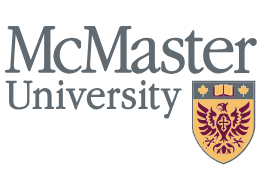Labarge Postdoctoral Fellowship in Mobility and Aging
McMaster University has identified aging as a research priority, and is focusing its research strength on addressing the most pressing questions facing the aging population. In 2016, the University made a transformative investment in this area by creating the McMaster Institute for Research on Aging (MIRA), which serves to support and connect researchers and aging research platforms in all six Faculties.
MIRA’s mandate is to support innovative research approaches that build upon McMaster’s culture of interdisciplinary collaboration, and, where appropriate, to engage older adults and other key stakeholders throughout the conceptualization, evaluation and implementation of interventions and technologies.
Through the generous support of Suzanne Labarge, MIRA created its first focused research centre, the Labarge Centre for Mobility in Aging (LCMA), to enable and amplify research on all aspects of mobility in aging, including the causes and consequences of reduced mobility. In this context, mobility is very broadly defined; research supported by the LCMA addresses topics that range from physical mobility and nutrition to social isolation, transportation and the built environment, among others.
In order to build capacity and support excellence within the field of aging research, the LCMA within MIRA has created a post-doctoral fellowship for recruitment or retention of high caliber scholars. The Labarge Post-Doctoral Fellowship for Mobility in Aging is a two-year award valued at up to $70,000 per year, plus a $15,000 travel and research allowance.
Details about the award, submission and review processes are outlined below.
Eligibility
Canadian citizens, permanent residents and international candidates are eligible for the award. Applicants must have completed their PhD within the last three years, and must be able to begin the fellowship in fall 2018. Current or prospective post-doctoral fellows are encouraged to apply.
Conditions of the award
The successful candidate is expected to pursue full-time postdoctoral study and research at McMaster University for the full term of the Fellowship. The award provides up to $70,000 per year for salary for two years, plus a total of up to $15,000 to cover research expenses, professional development and travel over the two-year term. The supervisor is expected to pay for the benefits of the Fellow, and for any research or travel expenses beyond what is covered through these funds for the two-year term. Fellows who have received other major academic awards or fellowships are eligible to receive top-up funding from this award to a maximum combined salary of $70,000 per year and up to $15,000 for research expenses. Fellows may not participate in other paid employment during the term of the Fellowship, unless approved by McMaster University and MIRA.
The applicant and principal supervisor are expected to involve at least two other researchers from two different Faculties (outside of the principal supervisor’s Faculty) as mentors in the development of an interdisciplinary research plan. The proposal should clearly indicate how the supervisor and two mentors will contribute to the development and execution of the project and how this interdisciplinary approach will bring value to the study.
Application Process
Applications are due on May 11, 2018 at 12 p.m., and should be submitted as one PDF document (except for the confidential letters of support, which should be sent separately, in confidence) by email to mirainfo@mcmaster.ca.
A complete application will include the following:
- Labarge Mobility PDF Checklist;
- Labarge Mobility PDF Cover Sheet;
- Curriculum vitae of the candidate;
- Official graduate transcripts;
- Cover letter written by the candidate that clearly states
- 1) how the project will impact the mobility of older adults and advance the objectives of MIRA and the LCMA;
- 2) how the research project will meaningfully incorporate and engage cross-disciplinary perspectives;
- 3) the rationale for selecting the supervisor and mentors, and
- 4) how the Labarge Fellowship will influence the candidate’s future career;
- Research proposal (three pages maximum, 11-pt Calibri or Arial font, standard margins) including a two-page description of the proposed research, a half page demonstrating the value and purpose of the interdisciplinary approach, and half page describing the potential impact and future direction of the program of research, including proposed knowledge translation activities;
- One letter from the proposed supervisor confirming support for the proposed project and financial support of at least $10,000 per year for the benefits, research and travel expenses of the Fellow. The letter should describe the alignment of the proposed Fellowship with the supervisor’s existing program of research. The letter should also describe the involvement of the two mentors from two different Faculties including
- 1) how their expertise and involvement will meaningfully advance the project; and
- 2) the mechanism through which their involvement will occur. Formal confirmation of participation of the two mentors will be requested from the successful candidate prior to the start of the Fellowship;
- Two confidential letters of support. One of these letters must be from the PhD supervisor or most recent postdoctoral fellowship supervisor. Both letters should be sent directly to MIRA at mirainfo@mcmaster.ca with the candidate’s name in the subject line.
Selection Process
MIRA will evaluate the applications and select the award recipients based on the quality, feasibility and impact of the research proposal, the value of the interdisciplinary approach, the academic performance of the candidate, and the alignment with MIRA and the LCMA’s goals and mandate.
If a suitable candidate is not identified based on the feedback of the review committee, the award will not be offered.
